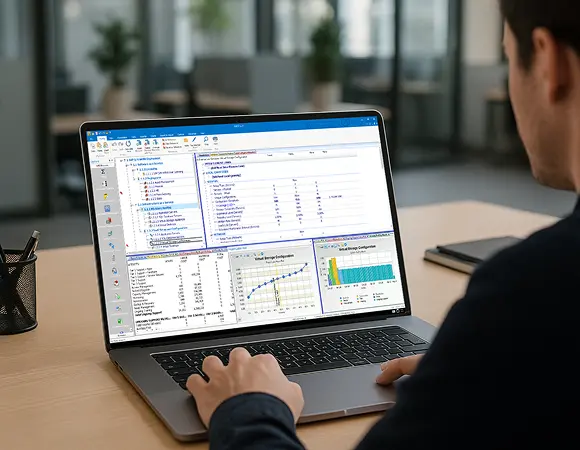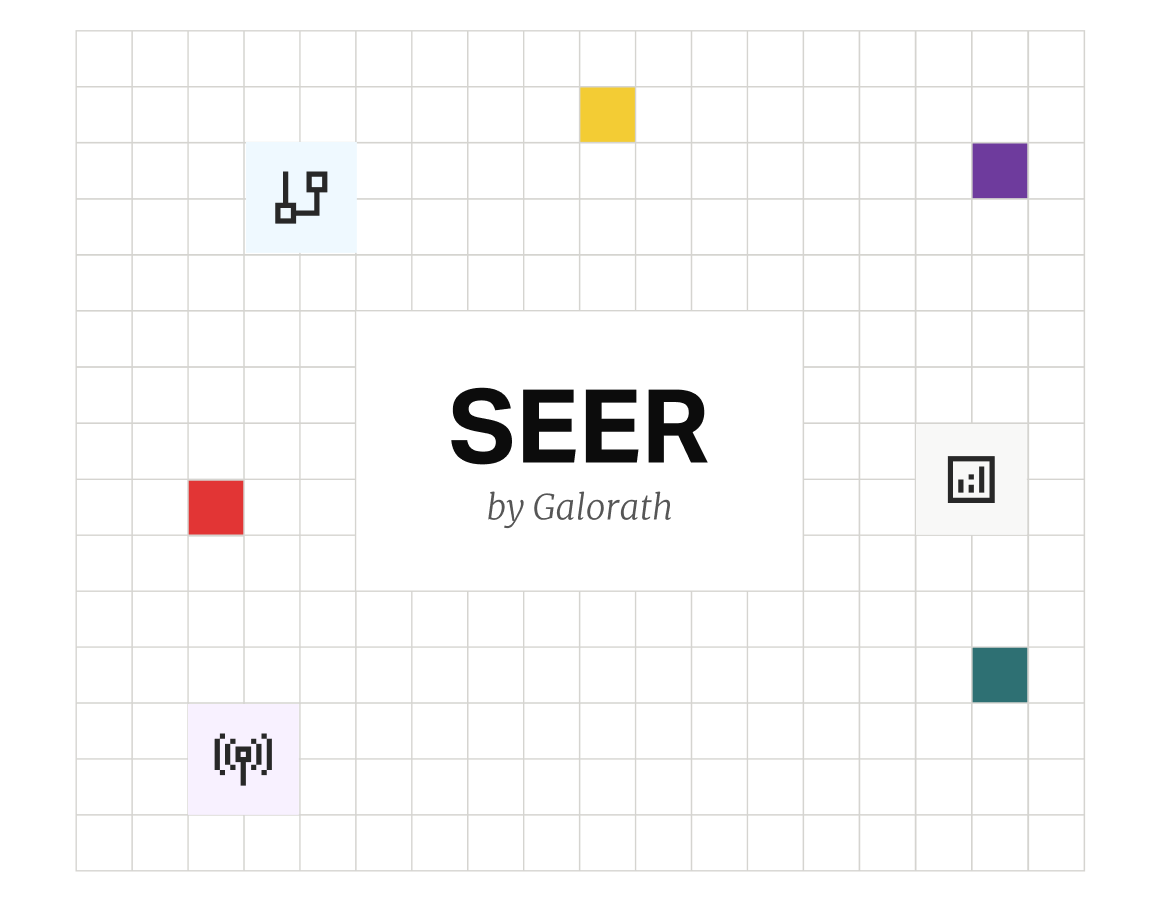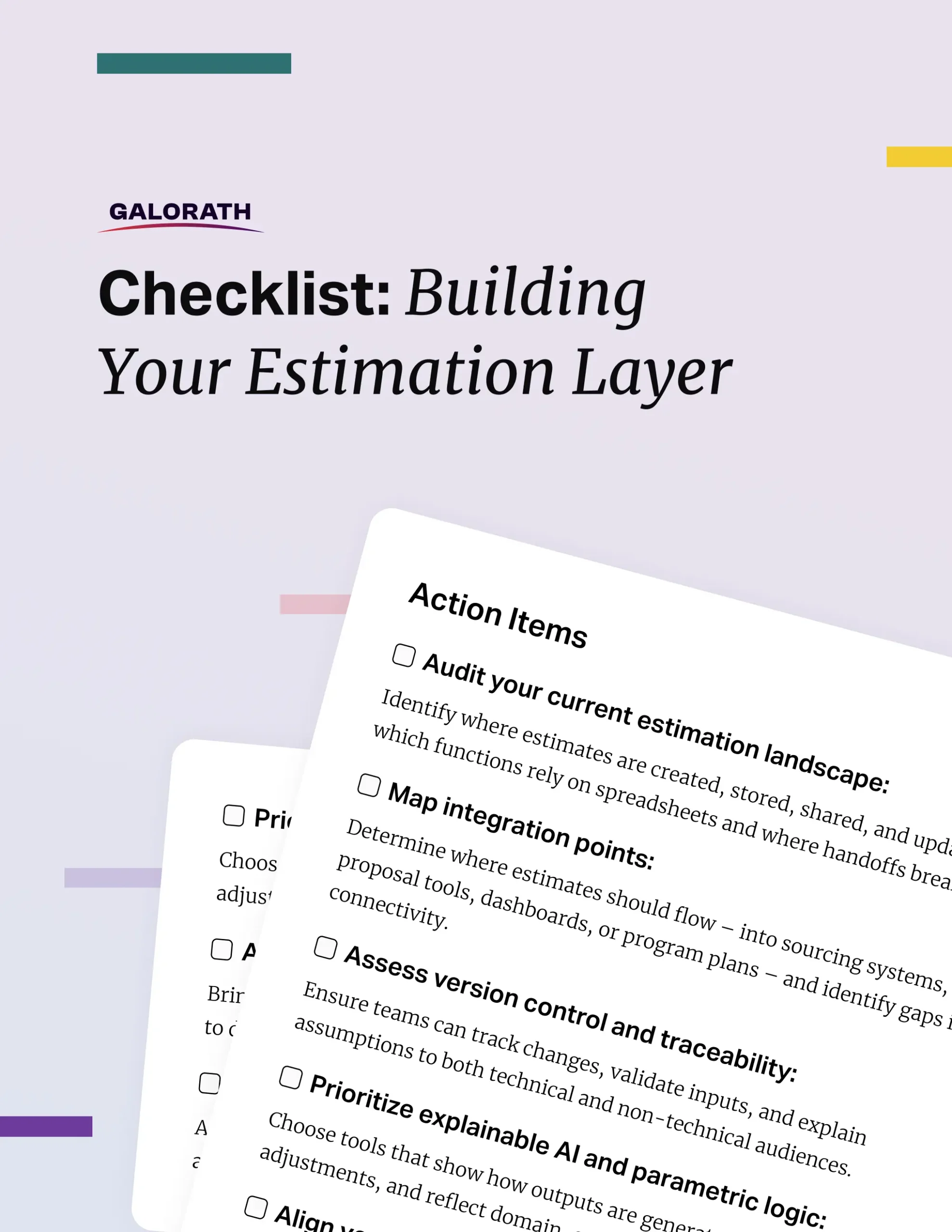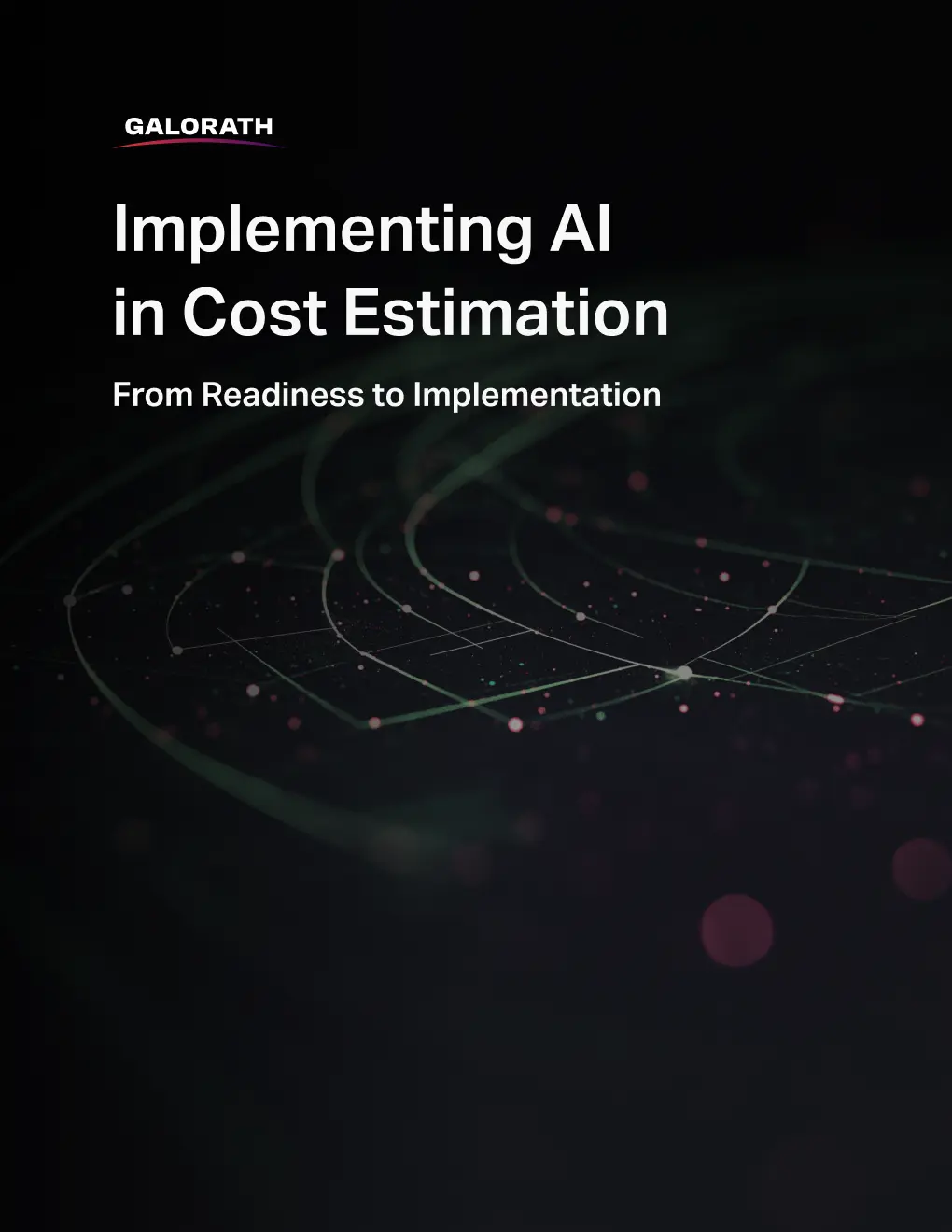Mastering Cost Risk with the CRED Model: A New Approach to Managing Uncertainty
Project Scheduling Software for Confident Timeline Forecasting
Smarter project scheduling starts with Galorath’s AI-driven platform, powered by its flagship products, SEER® and SEERai™. Engineers, analysts, and program leaders use the platform to align schedules with cost, scope, and delivery goals. With parametric models and real-time scenario planning, SEER helps teams build plans they can execute effectively.

Built to Support Real Project Schedules
Project Management Scheduling Software That Helps Teams Plan and Deliver With Confidence
SEER functions as project management scheduling software for engineering, finance, and program teams managing large, cost-driven initiatives. It helps users create accurate project schedule programs by connecting technical scope, labor estimates, and delivery milestones. As software for project scheduling, SEER supports early planning and ongoing updates using parametric models and scenario-based logic. Teams can adjust timelines, test trade-offs, and align decisions with both cost and schedule targets. The result is a schedule you can build from and defend throughout the lifecycle.
Align People, Tasks, and Timelines
Resource Scheduling Software That Connects Capacity, Time, and Task-Level Planning
SEER supports resource scheduling software needs by helping teams align the right people to the right tasks at the right time. Built for complex programs, it functions as both capacity planning software and task scheduling software, offering visibility into labor, roles, and delivery windows. Teams can plan around resource constraints, evaluate workload impacts, and adjust timelines as scope changes. SEER also supports project time tracking and integrates that insight into future planning cycles. This creates a closed feedback loop that connects effort, availability, and deadlines in one structured environment.

Smarter Scheduling Starts With SEER
Project Scheduling Tools Built for Forecasting and Delivery
SEER provides forecasting and scheduling software features that help teams build reliable timelines and adjust with confidence.
Scenario-Based Forecasting
Test what-if scenarios to see how changes in scope, budget, or timing affect overall schedule outcomes.
Integrated Resource Logic
Connect cost, labor, and availability to schedule plans for more accurate staffing and delivery targets.
Task-Level Scheduling
Develop work breakdown structures and task dependencies to improve coordination across teams.
Schedule Risk Visibility
lIdentify risk early by analyzing uncertainty in task durations and dependencies across the project..
Real-Time Updates
Adjust schedules quickly as plans shift and instantly see the impact on resources, time, and cost.
Defendable Schedules
Generate transparent schedules with traceable logic that support internal reviews and external oversight.
Connect Schedules to Cost and Scope
Scheduling Software That Aligns Project Tasks, Resources, Budgets, and Delivery Goals
SEER bridges the gap between scheduling, cost estimation, and scope planning. It helps teams create schedules that are not just timelines, but complete, data-driven plans. Users can connect cost models, resource constraints, and technical tasks in one environment. This makes it easier to align priorities, communicate updates, and forecast changes across the project lifecycle. Whether you’re managing labor across teams or adjusting delivery targets, SEER gives you the structure to stay on track and the insight to act early. The result is a schedule that reflects how work really gets done.

Purpose-Built for Technical Schedules
Flexible Scheduling for Software, Hardware, and Manufacturing Projects
SEER supports project scheduling across engineering disciplines, giving teams a single platform to manage time, resources, and cost for software, hardware, and manufacturing programs.
Software Development Schedule
SEER helps software teams forecast time, track dependencies, and align cost with delivery targets. Model sprint durations, task risk, and resource needs in one shared view.
Hardware Development Schedule
SEER supports hardware projects by aligning technical milestones with labor availability, cost models, and delivery constraints. Plan confidently from design to test
Manufacturing Schedule
SEER connects manufacturing tasks with supply chain timing, production labor, and facility capacity. Teams get real-time visibility into risk and resource trade-offs.
Tie Scope, Cost, and Time Together from the Start
Galorath’s platform links schedule logic with cost and resource models. Teams generate real timelines and test the impact of delays or scope changes.
Explore our Case Studies
General Dynamics Brings Structure to Project Planning
General Dynamics applied Galorath’s structured estimation to improve schedule realism. Integrated plans helped align internal stakeholders and execution teams.
Read more →“The SEER tools are equally strong at estimating both software and hardware costs. When you use a parametric model like SEER, you reduce uncertainty by deconstructing the project into smaller, well-defined components, the cost estimate of which can be more readily critiqued by the technical and program management staff. SEER is easy [to use] and intuitive.”
Link Schedules to Cost and Risk Plans
Frequently Asked Questions (FAQ)
Does SEER support Agile and Waterfall scheduling methods?
Yes. SEER supports both Agile and Waterfall scheduling methods, giving teams the flexibility to align schedules with their preferred delivery approach. For Agile, SEER models sprints, backlogs, and iterative tasks while tracking resource impact and timing. For Waterfall, SEER supports traditional phase-based schedules with clear dependencies, task durations, and milestone tracking. This flexibility allows organizations to standardize planning across projects while maintaining the structure they need to forecast, manage, and deliver with confidence.
Can SEER simulate project delays and resource conflicts?
Yes. SEER allows teams to simulate delays, resource conflicts, and shifting priorities before they impact delivery. Users can model schedule changes, test what-if scenarios, and see how adjustments affect timelines, costs, and workloads. By identifying bottlenecks and resource gaps early, teams can resolve conflicts, reallocate effort, and protect critical path activities. This proactive approach improves coordination and supports more confident decision-making throughout the project lifecycle.
Can SEER model complex project dependencies and critical paths?
Yes. SEER is built to model complex project dependencies and identify critical paths with accuracy and clarity. Teams can define task relationships, link schedules to resource and cost models, and visualize how changes ripple across the plan. SEER highlights timing risks, sequence impacts, and priority conflicts so teams can stay focused on what matters most. This level of insight supports better coordination, stronger accountability, and delivery schedules that reflect real-world complexity.
What types of teams benefit most from SEER’s scheduling capabilities?
SEER’s scheduling capabilities support a wide range of teams involved in planning, delivery, and oversight. Program managers, engineers, analysts, and operations leads use SEER to build structured, realistic schedules tied to cost, resources, and scope. It is especially valuable for teams managing complex, high-stakes projects where coordination across roles and departments is critical. Whether planning technical work, tracking dependencies, or adjusting timelines, SEER helps teams move from isolated schedules to shared, data-driven planning.
Build Reliable Schedules That Align Cost, Resources, and Delivery Targets
Ready to strengthen your project scheduling? Request a consultation to see how SEER helps teams plan accurately, manage risk, and stay on track from day one.
Trusted by leaders in the industry:







